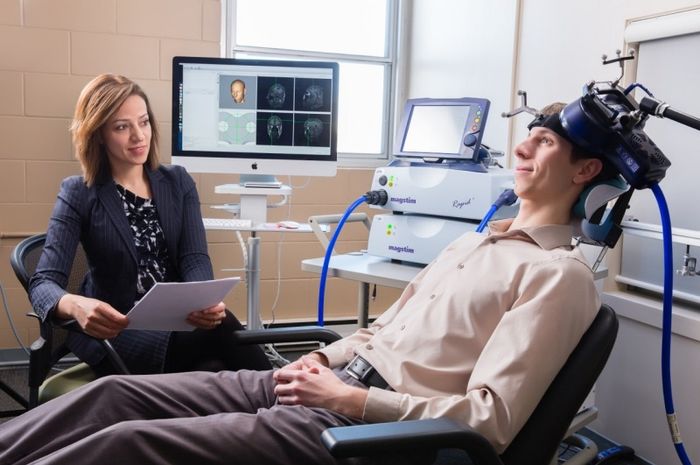In the world of health data tracking, and let me tell you, it’s been a game-changer. Tracking my health data not only helped me understand what’s actually going on with my body, but it also provided insights that I wouldn’t have noticed otherwise. In this post, I want to walk you through the benefits of health data tracking and share some of the best tools that can help you take control of your own health.
What is Health Data Tracking?

Health data tracking involves monitoring different aspects of your physical and mental well-being over time. From step counts to sleep patterns, heart rate, diet, exercise, and stress levels, tracking your health gives you a clearer picture of how your body is functioning and what you can do to improve it. Instead of relying on guesswork or only noticing patterns when things go wrong (like when I suddenly gained a few pounds or started feeling sluggish), health data tracking helps you proactively monitor how your body is performing.
For example, if you’ve ever wondered if your sleep is actually affecting your energy levels or if you’ve been working out hard enough to meet your fitness goals, health data tracking can provide answers. By collecting and analyzing this data, you can spot trends, make informed decisions, and ultimately optimize your health routine for better results.
Benefits of Health Data Tracking
There’s no denying that health data tracking has become a cornerstone of modern wellness. But what are the specific benefits? I can speak from experience that there are several key advantages to tracking your health, from personalized insights to long-term progress.
1. Increased Awareness of Your Health
One of the first things I noticed when I started tracking my health data was that I became much more aware of my habits. Before, I thought I was getting enough sleep or exercising enough, but without actual data, I was just guessing. Once I started tracking things like my sleep patterns and activity levels, I was shocked by how much I was missing. For example, I was getting less sleep than I thought and wasn’t hitting my daily step goals, even though I thought I was staying active.
Having real, quantifiable data showed me exactly where I was falling short—and where I was excelling. This newfound awareness empowered me to make changes, like tweaking my bedtime routine or adding more movement throughout the day. Tracking data gives you a clear, accurate picture of where you’re at, which makes it easier to make adjustments and move forward.
2. Personalized Health Insights
Health data tracking isn’t just about collecting numbers; it’s about what those numbers can tell you. If you’re looking to optimize your health, you need data that’s specific to you. Whether you’re monitoring your heart rate during exercise, tracking your nutrient intake, or recording how many glasses of water you drink, tracking allows you to pinpoint exactly what’s working and what’s not.
For instance, I found that tracking my nutrition helped me understand what foods were giving me energy and what were dragging me down. By logging my meals and seeing how my body responded to different foods, I was able to make better dietary choices. I could directly correlate how my food choices affected my energy levels, mood, and performance in workouts. This level of insight simply wouldn’t have been possible without tracking my health data.
3. Improved Motivation and Accountability
Let’s face it—staying motivated to maintain a healthy lifestyle can be tough, especially when progress feels slow. But one of the things I love about tracking my health data is that it provides instant feedback. If I’m meeting my goals (whether it’s exercising for 30 minutes a day, hitting my step count, or drinking enough water), I get that rewarding sense of accomplishment when I see it in real-time. If I’m falling behind, I’m reminded to get back on track. It creates a level of accountability that’s hard to ignore.
One of the biggest motivators for me was seeing my improvements over time. When I noticed that I was getting better at hitting my sleep goals or walking further each day, I felt a sense of achievement. It’s much easier to stay motivated when you can see tangible progress—and the best part is, the data doesn’t lie.
4. Early Detection of Health Issues
Tracking your health data over time isn’t just about improving performance or hitting fitness goals. It can also help you spot potential health issues before they become serious. For example, if you’re tracking your resting heart rate and notice that it’s consistently higher than usual, that could be a sign of stress or an underlying health condition. Similarly, if your sleep tracking reveals that you’re consistently waking up multiple times during the night, it might be a clue that something’s off with your sleep hygiene or overall health.
Personally, I was able to catch a minor health issue (overexertion during workouts) just by tracking my heart rate. I noticed that my heart rate wasn’t returning to normal as quickly as it should after exercising, which prompted me to take a few days off and rest. Without tracking, I might not have noticed that I was pushing myself too hard, leading to potential burnout or injury.
5. Better Communication with Healthcare Providers
If you’re working with a doctor or healthcare provider, having data to back up your concerns can make a huge difference. Instead of just telling your doctor, “I don’t feel well,” you can show them concrete evidence of patterns in your health. This can help them make more accurate diagnoses and provide personalized treatment recommendations.
For example, I’ve had situations where tracking my physical activity and sleep patterns allowed me to have a more informed discussion with my doctor. By bringing my data to the appointment, I was able to pinpoint specific issues and get advice that was based on real data rather than just subjective experience. Health data tracking doesn’t replace professional medical advice, but it certainly adds a layer of detail that can help your provider give you the best care.
Health Data Tracking Tools: The Best Options Out There
Now that we’ve covered the benefits, let’s talk about some of the best tools for tracking your health data. Whether you’re a beginner or an experienced health tracker, these tools can help you monitor various aspects of your health effectively.
1. Fitbit
I’ve been using a Fitbit for years, and it’s hands-down one of the best tools for tracking physical activity, heart rate, and sleep. The device is easy to use and provides detailed insights into your daily steps, exercise intensity, and overall fitness level. What I love most about Fitbit is its ability to track my sleep patterns—something I never really thought about before.
2. MyFitnessPal
If you’re serious about tracking your diet, MyFitnessPal is a must-have. This app allows you to log your meals, track calories, and see exactly how your food intake impacts your health. It has an extensive food database, making it easy to log meals quickly. I found it helpful for learning about portion sizes and identifying areas where I could improve my nutrition.
3. Sleep Cycle
If sleep is a priority for you (and let’s face it, it should be!), Sleep Cycle is a fantastic tool for tracking your sleep patterns. It analyzes the quality of your sleep, records when you’re in light or deep sleep, and helps you identify habits that might be disrupting your rest. I found that this app gave me insights into how different factors, like my late-night snacking or screen time, were affecting my sleep.
4. Apple Health (iOS) and Google Fit (Android)
If you’re looking for an all-in-one health tracking app, both Apple Health and Google Fit are great options. These apps integrate with various fitness trackers and devices, allowing you to log your steps, calories burned, heart rate, sleep, and more. I use Google Fit for its simplicity and its ability to sync seamlessly with other apps and devices.
Conclusion: Empowering Your Health Journey
Health data tracking is more than just a trend—it’s a powerful tool that can give you insights into your body, help you optimize your fitness, and improve your overall well-being. By tracking your data, you become more aware of your habits, get personalized insights, and stay motivated to reach your goals. Whether you’re tracking your workouts, sleep, diet, or all three, having real-time data at your fingertips is an incredible way to take control of your health.
If you’re ready to start tracking your own health data, I recommend exploring some of the tools I mentioned above and finding the one that best suits your needs. With the right tools and a little commitment, you’ll be well on your way to a healthier, more informed you.
To dive deeper into the world of health data, you can check out this Wikipedia article on Health data tracking here.



